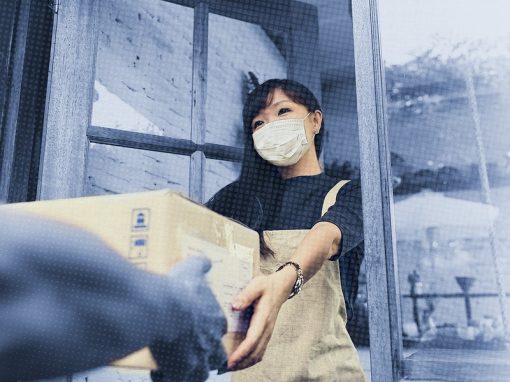A few weeks after the Pandemic sent the entire World into a lockdown, businesses across the globe found their revenue streams drying up as soon as the world came to a stop. This led to one of the most pressing problems that came along with the pandemic- rising unemployment.
While businesses and industries that operate digitally were still (barely) staying afloat, industries like tourism, hospitality, wedding and manufacturing, among many others came to an absolute standstill overnight. This meant all businesses operating in these industries saw their revenue streams abruptly become dry and could do nothing about it.
Some assumed that at least the bigger players operating within these industries would be able to weather the storm. Some of them did. In fact, some smaller businesses have also come out of this crisis stronger than ever. However, staying afloat during these testing times came at an incredibly high price.
The Employee Cost of the Pandemic
A tsunami wave of layoffs swept across industries and countries, hitting some much worse than the others.
Here are some stats that show the influence of the pandemic and global lockdowns in India:
In April 2020, roughly a week after the first complete lockdown was announced in the country, the unemployment rate jumped to 23.5%. This has been the highest recorded unemployment rate (by an enormous margin) in the history of our 74 year old nation.
6 states in the country reported an unemployment rate of over 40%, with Puducherry topping the list with a 75.8% unemployment rate.
Another five states reported an unemployment rate of more than 20%. This list included Uttar Pradesh, one of the most populous states in the country, with a population larger than the country of Brazil.
Even in November 2020, almost 8 months after the first lockdown was imposed, the national unemployment rate stood at 7.8%. To put this number into perspective, in 2019, the unemployment rate touched a 45-year high when it reached the 6.1% mark.
These numbers, while scary, don’t even come close to accurately representing the real-life repercussions of the pandemic. Even professionals that were doing excellent work, those who were thriving in their careers, found themselves desperately looking for an opportunity (that would let them prove themselves).
The unemployment rates rose so high that they started influencing other areas of the country’s economy. Parents found themselves struggling to continue paying for their children’s educations, tenants found it impossible to keep paying rent, those in need of medical attention were not able to afford it. News reports of celebrities, qualified engineers, and other accomplished professionals asking for help and doing odd jobs like selling vegetables became commonplace.
From many individuals’ point of view, even a stop-gap arrangement that pays would be welcomed as a breath of fresh air.

CareNext Virtual Job Fairs
Thankfully, TechNext and CareNext were built to weather such storms and we were able to ride out the worst of lockdowns and the pandemic without having to hand out any termination letters.
With every challenge lies its solution, we only need to look at it with a kind heart and a creative mind.
Every member of the TechNext family is a treasure trove of skills. The pandemic opened up opportunities for us to help utilize this diverse skill set of the employees to increase our own output efficiency while rewarding them with a sense of achievement and personal growth.
But the CareNext team was not satisfied with this outcome. Mr Lalit Deo, CEO of TechNext, came up with a plan to help out a few of our fellow citizens that were looking for employment opportunities – a virtual job fair.
Under his guidance, we managed to go a step ahead by finding a brilliant way to help talented and able professionals find job opportunities and connect with organisations that could use their skills to survive and thrive during the pandemic. To achieve this vision, we needed a capable partner.
So we joined hands with the Professional Solidarity Forum in Hyderabad and conducted Virtual Job Fairs for professionals all over the country.
These job fairs reached and provided employment opportunities to more than 600 people who’s professional lives were badly affected by the pandemic and the situations that emerged in its wake. At the same time, these job fairs also empowered businesses that were already riding out the pandemic with innovation.
Conclusion
The sole purpose of creating CareNext has been to ensure that we are giving back to society as much as we can. We are grateful that even during the pandemic and the difficult times it brought, we were able to not lose sight of this vision and provide whatever help we could.
How are you helping your fellow citizens during this challenging time? Got any innovative ideas? Feel free to share them with us (and everyone reading this article) in the comment section below.



